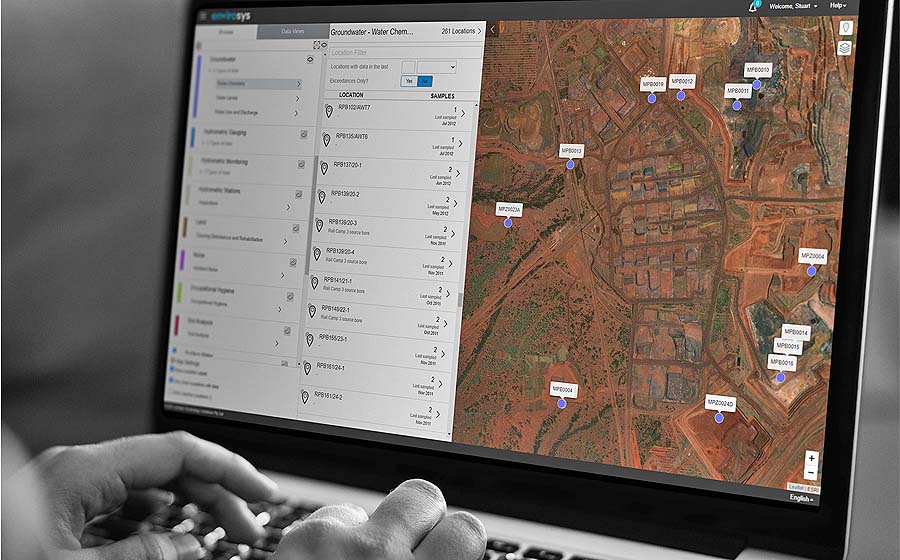
Reporting on your environmental compliance efforts can be challenging due to the diversity and breadth of data required. Timely and reliable data is key.
The demands for environmental compliance data are increasing by the day. Environmental compliance reporting has become a key part of company strategy in many organisations, especially in the resources industry. This can put an uncomfortable spotlight on organisations that are slow to report or appear to be less than transparent in their reporting. How can environmental superintendents and other key decision-makers get in front of their environmental compliance reporting obligations and what are the challenges for environmental compliance reporting?
Scrutiny about environmental compliance
Stakeholder demands are increasing when it comes to environmental compliance. At the same time, modern shareholders expect companies to be good stewards of the environment. Even members of the public are scrutinising and openly commenting on a company’s environmental track record. Complete and thorough environmental compliance reporting is the best way to build good will with those inside and outside your organisation. Producing accurate reports is also essential to maintaining ISO 14001 certification.
Diversity and breadth of environmental data
Whether you’re reporting on the condition of your water, how much energy you’re using, or your overall environmental impact, collating data into one report can be difficult. When you take into consideration all the ways your company can impact the environment, it doesn’t take long before you’re swimming in data.
For example, mining companies have detailed water monitoring programs that include but are not limited to:
- Groundwater – pits, bores, and aquifers
- Surface water – creeks, rivers, ponds, lakes, and dams
- Wastewater
- Process water
- Recycled water
- Potable water
- Sewage treatment plant
- Water reticulation – pipelines and standpipes.
Add in monitoring for air quality, energy use, vibration, noise pollution and emissions and the challenges increase exponentially.
Data coming from multiple locations
Depending on the compliance testing required, chances are your compliance data is coming from any number of laboratories and sources. It’s probably stored in different systems or tools, if it’s stored in a system at all, like when you have paper-based records. Too often reporting is reliant on one or more manual processes, or on personnel who have become integral to sourcing the data. Many environmental professionals end up becoming compliance data gatekeepers even if it’s not their intention to create that barrier.
Tracking and monitoring against many aspects
Environmental monitoring professionals are also under pressure to keep up with the volume of results. It’s typical for multiple matrices to be analysed against compliance criteria, comprising of hundreds of analytes. The bigger the operation, the more extensive the testing requirements. Across the board, environmental experts, engineers, geologists, and hydrologists are being asked to expand their monitoring programs, measure more parameters, and increase monitoring transparency.
Reporting in real-time
There’s a burgeoning trend to share “live” data publicly. This puts additional pressure on environmental compliance teams to create reports using timely data. If it takes multiple people and multiple sources to complete your environmental compliance reporting – not to mention many hours, days or even weeks – your ability to meet your reporting KPIs is going to be a challenge.
Is there a way to meet the challenges of environmental compliance reporting? Yes, and using reliable and timely data is the key.
Proving environmental compliance and remaining compliant
Accurate reporting is only part of the equation to environmental compliance. An end-to-end compliance solution helps you maintain compliance by setting limits, triggers and rules which are applied to all incoming data. This gives you the ability to schedule and track when incoming data should be expected, plus set expectations of exactly what should be coming in.
You can confidently prove you’re compliant by drilling into the data, using your compliance conditions to provide transparency and full auditability, from obligations to data. This gives you certainty around what action is needed, including identifying potentially harmful situations.
Using EnviroSys for real-time environmental compliance reporting
Luckily, it’s possible to create a single source of truth for all your environmental data. EnviroSys is designed to coordinate all the activities required to meet sampling, monitoring, and reporting obligations, and the subsequent collection of data across your organisation. This is achieved using a highly visual interface to show you a complete, multidisciplinary overview of your operation “at a glance”.
Not only are you able to store, manage and access any type of environmental data, EnviroSys gives you complete transparency of your data, in real-time, so you can always answer the question, “Are we compliant right now?”
Find out about acQuire’s environmental data management solution – EnviroSys.
Contact sales@acquire.com.au directly or head to the EnviroSys page.







